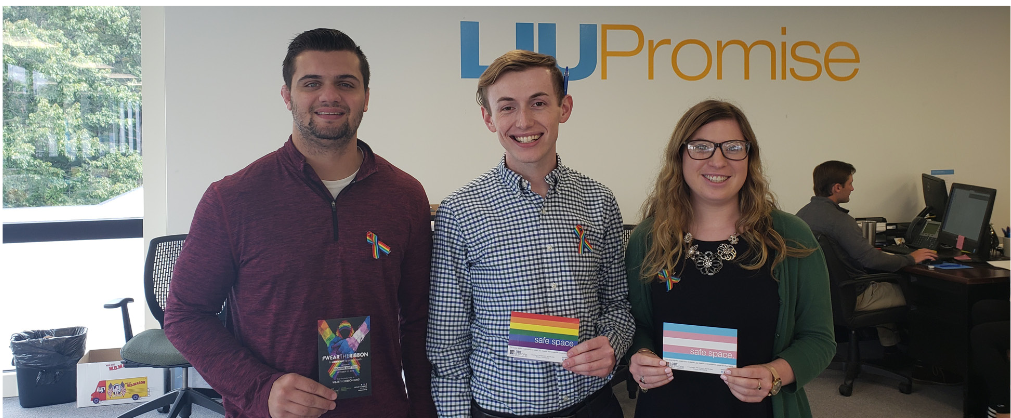By Ashley Bowden
Co-Editor-In-Chief
The campus community is comprised of various groups and individuals, and as more students develop a sense of identity during their college career, other members of the community are making an effort to accommodate them. Members of the Promise Office are hosting safe zone training sessions to educate students about LGBTQ identities, gender and sexuality. The training will also examine prejudice, assumptions and privilege.
Julia Pagano, associate director of Promise, is a training facilitator. “Safe zone training consists of a presentation, videos, individual and group activities, and round table discussions,” Pagano said.

“It talks about how to make a safe space in any kind of environment you may be,” Christina Lynch, senior speech language pathology major and Riggs Hall resident assistant, said. “In the RA role, it’s really important because college is a really important time for people to express who they are and find out what it means to be themselves.”
Campus Life staff began safe zone training on campus in 2015. “As college campuses became more diverse, it was important to us to educate the student body on LGBTQ identities, gender and sexuality,” Pagano said.
The entire Promise staff, most Greek organizations, and all resident assistants are safe zone certified, according to Pagano. “It’s our job to be there for our residents, and any student in general, to make sure they feel safe and welcomed,” Lynch said.
Resident assistants get recertified every year. “My first time around I learned a lot about definitions and [the] basics,” Lynch said. These include things like what it means to be transgender, gay or part of the LGBTQ community. “Every year after that it’s been learning from other people and [their] experience and relating to the different people who have been in the training with me.”
As a training facilitator, Pagano leads discussions and presents up-to-date information. “I have been the facilitator for about two years, and I have heard only positive feedback from the students. The training is engaging, fun, and educational,” she said. “I have always been an advocate and ally for the community. When I was given the opportunity to become the facilitator, I was happy to say yes.”Anyone who completes the training receives Safe Zone Certification. “When someone is safe zone certified they receive a certificate, or sticker, showing that they completed the training,” Pagano said. “Individuals who are certified pledge to be better allies, provide safe spaces, and support for the community.”
Upcoming training sessions will be held in Humanities on Thursday, Oct. 17 at 4 p.m. and in the Pratt Recreation Center on Oct. 21 at 4 p.m. Sessions last up to two hours, and anyone is welcome to attend.
Lynch recommends that any student attend the training.“It never hurts to educate yourself. You may think you know something, but it never hurts to get another level of information,” Lynch said. Those who are interested in participating can sign up at tinyurl.com/safezone-forsharks.




Be First to Comment